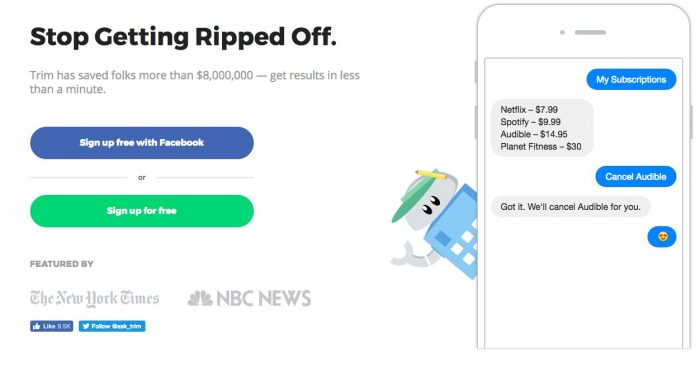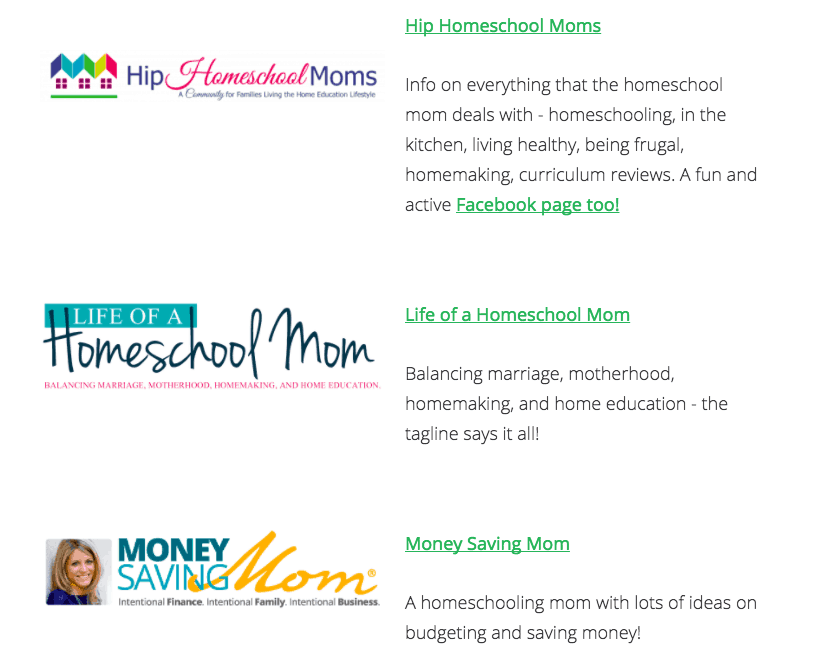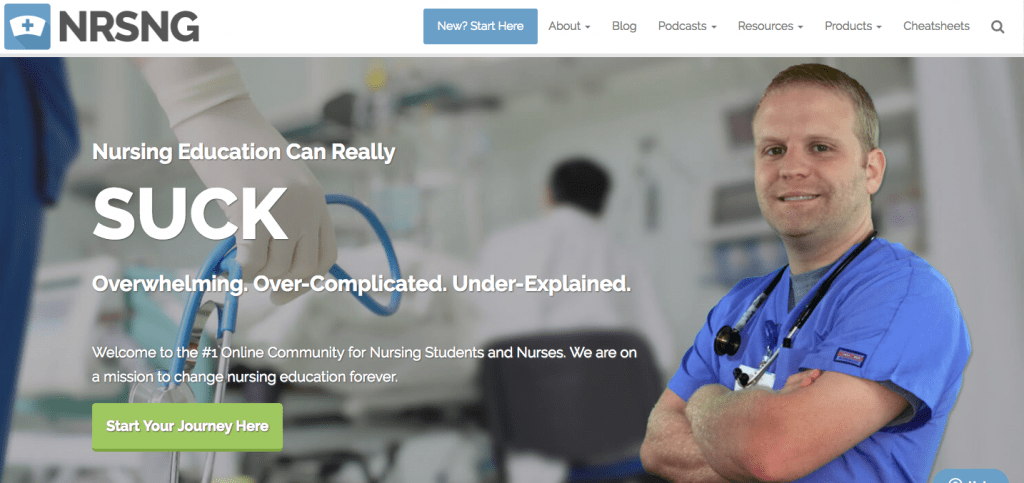Help! I Hate My Job – How To Quit Your Job ASAP

When you buy something through one of the links on our site, we may earn an affiliate commission.
We've all been there.
You have a sick feeling in the pit of your stomach as Sunday rolls around because you're already dreading waking up on Monday morning and going into work.
Maybe you hate your job because of the people you work with, the level of stress it causes you, or some other reason that makes you feel anxious and depressed whenever you even think about going into your job.
On the other hand, maybe you don't completely hate your current job but you'd like to have a little more say in how you spend your time and you don't exactly love what you do with those 40+ hours per week.
Today I'm going to share some advice from my personal experience on how you can start the journey to quitting your job as soon as possible. I'll even show some other success stories of everyday people who were able to escape the 9-5 rat race and do work that they enjoy.
The Case For Freedom
I'll admit upfront that I'm writing this guide from the slant that freedom is more important than money.
As a man with a wife and 3 kids, I'd rather have just enough to meet our basic needs and have full control over how I spend my time than I would to drive around town in an Aston Martin like Spencer does.
Maybe you're like Spencer, and having a life full of champagne wishes and caviar dreams is what it's all about for you – but that's just not me.
That said, this article is really written to be an action plan for those of you who aren't looking to climb the corporate ladder, but would be happy with being able to simply replace your income and meet your basic needs without having to work a job you don't particularly like.
That doesn't necessarily mean you want to be a full-time entrepreneur, but maybe the work you really love doesn't pay very well so having some side income would allow you to move out of a job you hate and into a job you're passionate about.
Too Good To Be True?
If you're new to the idea of side hustling and making money online, it may all sound a little too good to be true. However, I can assure you that there are plenty of “normal” people already doing this (I'll show you plenty of them in a moment).
For many people, this is a gradual process. If you've got a family to support and you storm out of your job tomorrow with no plan about how you'll replace that income, that's probably a bad idea.
No… I'll just say it… that's a bad idea.
That's not what we're endorsing here.
Rather, this article is about showing you the practical steps you can take to limit your expenses, and begin to add sources of income outside of your job.
As your monthly expenses start coming down and your non-job income starts to go up, turning in that 2 week notice starts to look a lot more feasible.
Let's start by diving into some perfectly legitimate reasons you may want to consider quitting your job.
Reasons You Should Quit Your Job
The weight of the decision to quit your job is different for all of us.
If you're a high paid salesperson (or have other high income skills) with a lifestyle that requires a huge amount of monthly income to sustain, the questions you have to answer are much different than someone with a studio apartment working at Home Depot.
That said, the simple fact is that working a job you hate is just no way to live your life.
I was reminded of the story of Bronnie Ware when reading an article about the 7 traits of happy people. For years Bronnie worked with people who were living out the final days of their life. She heard many people share their regrets about the things they wished they'd done differently.
In her list of the 5 most common themes, the first one is “I wish I’d had the courage to live a life true to myself, not the life others expected of me.”
While it's cliche, life is simply too short. You'll spend about 35% of your waking hours working, so why not take a shot at earning a living by doing what you love?
While this isn't an exhaustive list, here are just a few legitimate examples of when quitting your job is probably a good idea:
When Your Job Affects Your Personal Life
I mentioned that seemingly everyone has been in a situation where they had a job that they absolutely hated.
It's a terrible feeling.
One of the worst parts is the fact that your work doesn't just stay at work – it follows you home.
My first “real job” when I got married was working as a customer service rep for a large national bank. According to my timesheet, I clocked out at 5:30 every Tuesday through Saturday, but my brain told a different story.
In a call center environment, you get peppered with sometimes over 100 calls in an 8 hour shift and I've found that 0% of those calls are from people who are calling to report how happy they are with the bank.
On the contrary, people call blaming “you” for charging them an overdraft fee, stealing their money, or otherwise messing up something that has apparently put their entire financial future into jeopardy.
Since you have very little authority to actually do anything helpful, you spend your day giving half-hearted apologies to strangers who are really mad at you.
In that environment, guess how compassionate you are when you arrive home in the evening and hear a family member complain about something?
Perhaps you're in a job now where you can relate to that feeling of leaving the office and feeling like a glorified punching bag.

Maybe some people can do it, but I found it almost impossible to just leave that stress at the door and resume normal life at 5:31 PM. Instead, I found that impatience, anxiety, and whole bunch of other undesirable qualities were finding their way into my home life.
I was desperate to make a change.
When You Feel Like A Number
I was reading a book/article recently, and I'm bothered that I can't recall which one it was to share it with you, but the author shared a story about their “aha” moment about life being too short, which ultimately led them to step out and pursue their dream.
I'll do my best to retell the details, because the moral of the story is quite relevant.
The story was about a man at a factory who'd been the ideal employee for 30+ years. He did everything right, was well respected, and very good at what he did.
One day the man suddenly passed away.
While the employees were all sad about it, a business has a way of moving on. The author recounted how they brought in a replacement within just a couple of days from another location, and in many ways the business was up and running again like nothing had ever happened within about 48 hours.
We are all replaceable.
In business terms, some are harder to replace than others but in the end the world won't stop spinning when our time has passed.
That's why feeling like a number at your job is particularly deflating.
According to Gallup, about 70% of workers feel disengaged at work. While there are plenty of reasons for that, I've found that when I'm working a job where I feel like I could be replaced by a stranger off the street and it really wouldn't matter to the business, I feel particularly disengaged.
For awhile I had a job where i opened mail, time stamped it, and put it in a metal bin.
They might as well have put “Employee #273” on my badge instead of “Jake.”
Feeling like your work is appreciated and actually making a difference is a huge part of finding meaning and being engaged.
We all want to use our talents and be recognized, so if you feel like you don't have an opportunity to express yourself in your work, it might be a sign that you should move on.
When You Can't Envision A Future There
Just because you may feel like a number today working some low level job doesn't mean that can never change.
In just a moment we're going to shift gears and speak to those of you who want to work for yourself and prefer the freedom of more independent sources of income.
However, you may be more inclined to climb the corporate ladder as they say, as opposed to starting your own business.
If that's the case, you don't have to look far to find high level executives who started at the bottom. For example, the COO of McDonalds, Tim Fenton, started out as an hourly employee in a Utica, NY McDonalds in 1973.
Gutting it out through a tough job is much easier when you see some promise of future opportunity, but if you can't envision a brighter future that you're working towards, you might just be in a dead end job.
Here are 20 signs to look for if you're not sure whether you should hang in there or move on.
Should I Quit My Job Now?
Despite having a job that I hated, I was newly married with bills to pay.
So when well meaning friends would offer brilliant solutions I'd never considered like “just quit!” I knew it was a little more complicated than that.
Unlike when I was living on mom & dad's dime, I now had some skin in the game and something to lose. If you're in the same kind of situation, it's not as easy as just walking away.
In fact, quitting your job with a bunch of fixed expenses and no other source of income is probably a bad move.
A more practical plan is to start eliminating unnecessary expenses and increasing your sources of income. Fortunately, there are plenty of legitimate ways to do this, none of which include sending money to members of a foreign royal family with the promise of a greater return.
So throughout the remainder of this guide, my hope is to provide some quick and easy ways to do both – cut down on non-essential expenses and increase the income you're earning from sources outside of your full-time job.
Prepare To Quit – Limit Expenses
I realize that a discussion about how to spend less money isn't nearly as fun and exciting as the topic of creative ways to make more money.
Furthermore, I'm not Dave Ramsey and I don't want to turn this into a huge list of all the things you should quit spending money on.
That said, reducing expenses is arguably just as important as adding income sources in the discussion about how to quit your job as soon as possible.
At a very basic level, your job is all about providing you money to live. The less it costs you to live your life, the less money you need to make to sustain that life.
The guy who can live on $2,000 per month is a lot closer to being able to replace his steady job than the guy who needs $5,000 per month just to survive.
So every dollar you cut is one less dollar you have to earn to live your life.
While I'm not here to convince you to be a card carrying minimalist, there is a freedom that comes from reducing the amount of stuff in your life – both mentally and financially.
Let's talk about 5 practical places that you can cut significant expenses from your life.
Cut The Cords
Maybe this is so obvious in 2017 that I don't even need to mention it, but those cable and satellite TV bills are one of the first things you can get rid of. About 1.1M cut the cord of cable TV in 2015 and the number of homes without it are growing year after year.
The easiest 1-2 combo here is to go with Netflix + local channels via an antenna which will cost you about $10 per month. With the average cable package coming in at $66 per month, you've just saved about $56 off your monthly expenses.
Click here for a fun calculator to see how much you'd save.
Cut The Internet
This may sound extreme, but hear me out. People pay about $50 per month for broadband internet at their house. Obviously getting rid of your home internet also means no Netflix, but depending on where you live you might be surprisingly close to free wifi. Places like Starbucks and McDonalds are options you'll find almost everywhere, plus your local library typically has free internet available.
Here are a few other ideas of places you can find free wifi.
Either way, you should at least review which internet package you're paying for and you may find that you don't really need to pay a premium for 100MB speeds – 10 MB might be fine for what you need and save you a chunk of cash every month.
Lower Your Food Budget
We all know that eating out at restaurants is usually a lot more expensive than cooking dinner at home, but even when you already eat dinner at home there are still ways to save.
For example, $5 family crockpot dinners are all over the internet and are a double win of saving time and money.
While ‘cutting back on food' might sound like trite advice to you, I'd encourage you to track your food expenses over the next month and you might be surprised just how much of your paycheck gets eaten.
Change Cell Phone Service
I'm going to assume you've already canceled your home phone. If not, cancel your home phone. Since living without a cell phone is virtually impossible, maybe you can just change your plan/provider and save money there. I'll be honest and say that I'm a Verizon guy, but according to this man now wearing a yellow shirt, it's 2017 and all the national carriers are about the same level of quality.

I don't care which cell phone provider you use, but odds are you can save money by shopping around and either switching providers or maybe teaming up with friends/family to be part of a group plan instead of an individual plan which could save you money.
Trim Your Subscriptions
It seems like there is a subscription service for everything. And while getting all the ingredients you need for a chef-quality meal delivered to your door is fun, those costs add up.
If you're like me, you end up subscribing to different digital services that cost $10 and $15 there and then forget all about them. The problem is that those services are happy to keep taking your money until you tell them to stop.
The Trim App is a simple way to stay on top of any subscriptions you might not need. It simply sends you a text when those bills get taken out, so you can make sure you're not paying for stuff you don't need. Click here to check it out.

Honorable Mentions
Clearly, I've only scratched the surface on things you can do to lower your monthly cost of living. However, it's not a stretch to say that by taking a hard look at just those 5 areas of your budget you can save hundreds of dollars per month.
I've not even touched on shopping around for cheaper insurances, downsizing your house, and other things that can have a HUGE impact on how soon you can realistically quit your job.
So if you're feeling inspired and want more ideas, check out these other resources:
Cut Your Spending By $400 Per Month
How We Cut 50% Of Our Family Expenses
Legit Ways To Replace Your Income
Since I started my first website in 2008 with the hope of earning a side income, and the dream of fully replacing my full-time job – I've become comfortable with the idea of legitimately making money online.
However, I know plenty of people who still think of earning a full-time living online as some kind of gimmicky fad that is probably just a big scam.
If you harbor some of those same feelings, hopefully the details and examples I'm about to share will help alleviate some of your fears.
Of course there are plenty of “offline” ways to make extra money as well, I'm just a fan of things like niche websites and Amazon FBA products because you really can earn a passive income that doesn't require a ton of time.
Let's start by talking about what has quickly become one of the most common side hustles around.
Driving For Uber or Lyft
Ridesharing has exploded over the last few years and it has opened up an easy opportunity for people who want to earn extra money on their own time. While it's probably best suited as a part-time job, plenty of people drive for Uber and/or Lyft as their full-time source of income.
In simple terms, after you get approved to be a driver you can sign in and start driving whenever you want. If you want to do 6 hours per week or 60 – you can decide how often you want to be available.

While the driver pays Uber or Lyft directly, the company pays you a portion of the fare (about 75 -80%) and simply treats you as an independent contractor.
Rideshare Success Stories
TheRideShareGuy.com has become the authority site for drivers. They share tons of tips and advice for maximizing your earnings and from time to time share success stories and experiences from drivers like “The Black Car Guy” who went from being a struggling cab driver to making over $10,000 in a month with Uber (and you may also be interested in our list of black car names if you want to start your own business).
Sure, those results aren't typical – but they're possible.
In his case, he upgraded his vehicle to qualify for the higher-paying Uber Black service and then started working a pretty abnormal schedule with lots of early hours, looking to pick up a more executive-level clientele that would generally need more expensive rides.
Click here to read more about how he did it.
Selling Used Appliances
Sure, selling your old clothes and other clutter on Craigslist is a good way to free up some space and make a little extra cash, but can it really be a job-killing side hustle?
Ryan from ReCraigslist.com has done just that.
I can relate to Ryan's story of doing all kinds of things to make extra money, but then one day his friends challenged him to stop the shiny object syndrome and actually focus on just one thing and see if it could earn a living from it. So he started buying broken appliances on Craigslist like washers and dryers, and used YouTube to learn how to fix them from his garage.
In some cases, it might just be changing out a $2 fuse and then turning around and selling it. Either way, Ryan soon found that focusing on this little niche was enough for him to quit his full-time job and start flipping appliances full-time.
Obviously, you aren't just limited to appliances here. And just like Ryan knew nothing about how to fix a dryer when he started, this doesn't have to be something you're an expert in now – just something you're willing to learn in your spare time.
I think the question to ask is “what could you buy (or get for free) on Craigslist, add value to, and then sell it for a profit?”
Click here to check out some of his excellent how to articles.
Selling Products Online
There are tons of places to sell stuff, and an endless amount of things you can sell online – including ridiculous stuff like shipping your enemies an envelope full of glitter.
So I'm not going to spend a ton of time here telling you what you can/should sell, but I will outline a strategy to get started without forking out a ton of cash upfront.
We've talked extensively on this site about how to get started selling on Amazon. In particular, selling FBA which means “fulfilled by Amazon” where Amazon keeps your products in their warehouse and handles the shipping to customers when you sell (and if you're curious but don't know where to begin you can always consider an Amazon FBA coach or course).
As a former eBay seller, I can attest that having someone else box up and ship out your orders is worth its weight in gold – especially when it's something you do around your full-time job.
Third party sellers make up a large and growing chunk of Amazon's sales overall, so you don't have to look far to find real life success stories of people who make a nice living by selling products on Amazon.
Today, many sellers make their money is through private labeling, meaning that they create their own brand of an existing product. In our case, we try to create products that aren't really an “invention” but more of a variation of a product that already exists.
As the old saying goes, we try to build a better mouse trap in some way.
For example, if we find that people buy a bunch of yard rakes on Amazon but people commonly complain in reviews that the handle is uncomfortable to hold, we might talk to rake manufacturers about how we can add a thick padded grip to our product, Jake's Rakes.
(I'm totally going to start a rake business now that I've got a clever name in place)
Getting Started On A Tight Budget
The problem with coming out of the gate with a customized, private label product like that is you'll often incur quite a bit of cost upfront. Mainly because your product isn't something the manufacturer makes now, which means they'll have to make a custom version just for you and they won't want to just make 10 rakes so you can test out your idea.
Depending on what it is, they'll want you to order hundreds or even thousands of products upfront – which is especially risky when you have no proof that they are going to sell.
This past year I learned about an interesting alternative to this approach which can get you selling on Amazon much more quickly, and at a far lower cost.
I heard the plan from Will Tjernlund on the MyWifeQuitHerJob.com podcast.
His approach was to test product ideas by going over to AliExpress and finding a small product that is cheap to make, but can sell on Amazon for a nice profit. An example he gave on the podcast was concrete coasters – which are inexpensive to produce, but people are used to paying a pretty big mark-up to buy them online.
Obviously the ideas here are virtually endless.
From there, the plan is to order just a small amount from AliExpress – maybe just 10 units of the item. Then, you can start a seller account on Amazon and list your product as a new product, grab the details and photos from the manufacturer and very quickly have a live product listing on Amazon.
What you're hoping to do is find a product and market where you can see some early sales without spending a whole bunch of money. Then, if you do see sales rolling in without much time and effort invested, you can take a look at going to the next step of improving your own product to make a better and more customized version of it.
If the product doesn't sell well, you can lower prices as needed to recoup some of your money and then move onto another product to try.
At worst, since you're spending very little money to order a small quantity of products, you're not putting too much at risk.
At best, you find a product that sells well with no customization and discover a product idea that you can scale and turn into a nice side business, and maybe even more.
Success Stories
There are plenty of success stories in this space, but if you want to dip your toe into selling on Amazon, I'd highly recommend listening to the podcast I mentioned earlier. All in all, Will and his brother were able to scale up and sell $7.5M worth of products last year on Amazon and their own online stores.
Our own Spencer Haws now has a thriving Amazon FBA business as well, and he started with no experience at all. He basically had a regular household product that wasn't to his liking, so he found a manufacturer to make a custom version of the product and then ultimately started selling it on Amazon. Click here to read more about how he got started.
Another success story is shared over at TheSellingFamily.com about a lady named Susan who, maybe just like you, heard about people doing this and went and tried for herself. She was able to make her first $1,000 in 3 weeks after launching a product.
Freelance Your Skills
What if the skills you're using for the job you want to quit can help you earn money as a freelancer?
That's exactly what Bren did to make $4,000 in his first 30 days as a freelance writer on Elance (now Upwork). Despite being told that you can't really make a decent living as a freelancer because of the global competition, Bren tried it out anyway.
He was a professional accountant, so he signed up and looked for writing gigs where he could use his expertise to stand out.
Since he was going to be bidding the job at a premium price, he actually included a free sample of his work in the proposal he sent over, hoping to stand out from the crowd of applicants and justify his higher price.
The strategy worked.
Read more about his story and advice here.
Tips To Make This Work
First, you don't have to be a writer to do this. Upwork boasts over 3,000 different skills being available for hire, and some of the most in demand are graphic design, internet research, data entry and content writing.
Click here to see more of the most in demand skills.
So the odds are, there are things you already do well that people are on Upwork (and other freelance sites) looking for right now.
While I've not personally freelanced for others on Upwork, I can share the perspective of someone who has hired many people on their platform to do writing, design, editing, research and more.
Here are the biggest things I look for when reviewing proposals:
- Authenticity – I don't need someone to write a novel in their job application, but I do want to clearly get the idea that they read the proposal and they “get it.” I also prefer working with people who sound relatable, and like a real person – not a robot spitting out resume buzz words.
- Good Questions – Part of what helps me know the person actually cares and read my proposal request is when they ask an intelligent question or two about what I'm looking for to clarify the job.
- Freebie – People don't do this often, but when they have it certainly leaves an impression. I'm not suggesting you do the project for free, but if the client is looking for an engaging writer and you can do a little research and send them a proposed outline for your article, that will help you stand out from the crowd.
If you're considering the freelance route, check out this great list of 7 mistakes to avoid when you do start bidding on jobs.
Start a Website
You didn't expect to get a list of side hustle ideas from Niche Pursuits without us suggesting that you start an income-generating website, did you?
While we cover a bunch of different business ideas on this site, at the core has always been how to build a niche website and make money from selling products, advertising, or affiliate commissions.
Spencer was able to quit his job back in 2011 primarily because he built up a portfolio of small websites that started earning about $10,000 per month, which was quite a bit more than he was making from his banking career.
In an effort to show that the skills it took to do this could be learned and applied by most people, Spencer picked a reader named Perrin and publicly shared training calls and processes teaching him how to pick a niche and build a site of his own from the ground up.
Ultimately that site was able to make over $1,400 only 6 months in, and the full library of training calls can be found here. Since then, Perrin has moved on to work for himself and has built a completely different site on his own that could easily replace a full-time salary.
You Can Do This Too
The point I'm trying to drive home here is that with the right guidance and enough effort, you can do this too.
I love stories of people like Claire Smith who spent 12 years as a dentist and was just bored with it, so she decided to learn how to create a website, get people to visit that website, and then make money by sending them to Amazon to buy products.
If you've never started a website before and don't feel particularly tech-savvy, the idea of creating a website from scratch probably sounds rather intimidating. Let's break it down into the basic steps you can follow, then I'll let you know where you can go to learn more.
Picking a Niche
This is so important. My suggestion is if you don't have much time and money to invest in this side project is to make a list of things you're an expert in or that you're passionate about.
I've come to believe that there is almost no topic too obscure to consider.
That isn't to say that you can start a website about any random topic and make your first million, but if it's something you have an interest in – you probably aren't the only one. Go to Google and see if there are any active discussion forums on the topics you're considering.
When you're picking a niche – boring is totally fine.
You don't (and probably shouldn't) try to start a site about gadgets, iPhone apps, internet marketing and the like because your competition will be fierce.
However, many times there are niches that really don't have a go-to source for information and that could be an excellent opportunity to create the most helpful resource available in that space and start making some money.
Examples include the aforementioned Ride Share Guy which was started by a guy who was driving for Uber who realized their training resources were lacking – so he started answering the common questions that ride share drivers were asking, but nobody was really answering.
Lucas Hall did something similar with Landlordology. As a landlord, he was documenting information about how to successfully run his rental properties, and it turns out that there were tons of other landlords out there looking for this same information. Lucas' thorough and relatable content caught on and eventually he was acquired by Cozy.
Click here to hear Lucas on Pat Flynn's podcast.
Have A Plan To Stand Out
Picking a niche is one thing, but think about the angle you're going to take inside that niche. Ideally, this is where you can really start telling the story of why you and your site are different.
For example, there are a bunch of blogs out there about homeschooling and at first glance it seems like most of them are done from the perspective of a stay at home mom. In fact, I clicked on the first result in Google for “homeschooling blogs” and it was a big list that was full of homeschool mom blogs:

What about doing a homeschool blog from the perspective of a dad (there are tons of dad blogger ideas available)?
Sure, there are probably less of them around, but do you have any doubt that there are far fewer blogs you'd have to compete with in that space?
So the niche would still be “homeschooling” at higher level, but your plan to stand out, AKA your “angle” would be to focus on the interests and needs of dads who homeschool.
Here's an example of a guy who did just that, and in addition to his blog he offers paid courses/memberships and a high end coaching service for other dads.
I don't know that I did it on purpose at the time, but my first niche site BallparkSavvy.com is all about giving people information to help with their next trip to a Major League Baseball stadium. Part of the reason it works is because I took the angle of speaking to fans on a budget who are looking for free parking and other tips to cut corners and save money at a place that is typically very expensive.
So as you narrow down your niche, the next step is to find your own angle.
Figure Out How To Make Money
If you don't envision yourself selling a coaching service, e-book, etc. – that's fine.
I personally believe that in the niche website game, it's much harder to actually get people consistently coming to your site than it is figuring out how to make money once they are there.
A couple simple ideas that many sites use is just putting up pay-per-click advertising like Google Adsense, where you let Google worry about showing relevant ads to the people on your site, and when they click something you get paid.
Another is the Amazon Associates program, which basically means that you send people to Amazon to buy virtually anything they sell (which is everything on earth) and they'll pay you a commission for it.
Obviously there are many ways to make money from a website, but I share just these 2 easy ones because if you can build a little website about knitting and get 500 people per day reading your blog, making some money from that traffic is pretty simple.
(If you think knitting is a silly example, here's proof that it's not)
Need Help Getting Started?
If you are looking for a more detailed guide to building a niche website, check out this 11 step guide Spencer put together that really covers the topic from A-Z.
Need More Inspiration?
Throughout this post I've shared a number of different examples of people who have been able to escape the 9-5 by making money on their own terms, allowing them to take better control over their time.
If you're anything like me, you can never have too much inspiration.
So without further ado, here are some more examples of ordinary people who've been able to make it happen:
Jon Haws

NRSNG has turned into a huge success for Jon by selling various study guides and test prep resources to nurses. Jon now makes his living helping other people who want to become a nurse.
Chris Lee
Chris is the creator of rankXL and he used the niche website concept outlined earlier to ultimately replace his income and work for himself. Once he got to where he was basically covering his car payment by making $300 – $400 per month, he decided to double down and really master what he was doing. Ultimately that led to him making $3,000 per month and quitting his job.
He's now doing $10,000 per month from Adsense, and blogging about it over at RankXL.
Kris Edens
Kris was an exercise physiologist with a Masters degree, working at hospital when she grew tired of the “politics” of it, and started freelance writing which she enjoyed quite a bit more. This turned into more steady jobs and now she has a full blown content creation service for business owners over the age of 50! (How's that for finding a niche?)
Read more on her site KrisTheScribbler.com
Maureen Witten

I found out about Maureen's story on this excellent list of entrepreneurs who made it happen. What I thought was interesting is that she spent 2 years while serving as an elementary school teacher learning how to market her wellness business online. She said “I have time for my kids and clients and make more in 8 hours than I did in one month working as a teacher.”
Click here to check out Maureen's site.
Alina Adams
Alina sent 3 kids through kindergarten in New York City, and apparently the process of applying to kindergarten there is like pulling teeth. So Alina got so good at it, that she published a book about getting into NYC kindergarten and she gets paid as a consultant to help people get their kids into kindergarten.
If you don't think this is a real thing, here is her website to prove it.
If you have young children and are thinking about moving to New York City… don't.
Pranita Balar

This helps illustrate the point that you don't (and shouldn't) just quit your job and hope you can figure something out to pay the rent next week. Use some of these side hustles to try things out and build up other sources of income so you can make the leap much more practical.
Click here to check out Parnita's business.
Now It's Your Turn
If you've stuck with me this long, hopefully you've started to believe that quitting your job is a very real possibility.
You're probably not in a position to do it tomorrow, but that's ok.
You can start tomorrow and begin the process of building up new sources of income, and gradually finding simple ways to reduce your debts and expenses. If you do that, I trust that you'll look back 6 months from now and see that you're much closer to being able to realistically quit your job than you are today.
standard building-niche-sites
Want to learn step-by-step how I built my Niche Site Empire up to a full-time income?
Yes! I Love to Learn
Learn How I Built My Niche Site Empire to a Full-time Income
- How to Pick the Right Keywords at the START, and avoid the losers
- How to Scale and Outsource 90% of the Work, Allowing Your Empire to GROW Without You
- How to Build a Site That Gets REAL TRAFFIC FROM GOOGLE (every. single. day.)
- Subscribe to the Niche Pursuits Newsletter delivered with value 3X per week
My top recommendations
















